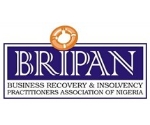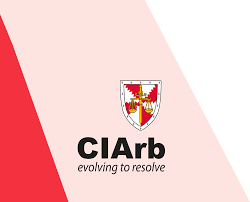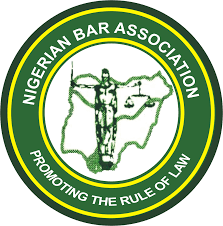How to Navigate the Regulatory Framework For Probate in Nigeria
Probate is a legal process of administering a deceased person’s estate. Probate is the process of administration and transfer of the real and intangible assets of a deceased person.
There are two ways to get a grant of probate in Nigeria, which are as follows;
Grant of Probate with a Will
Where a deceased dies with a will, he is said to have died testate. A grant of probate with a will is done where the deceased dies testate, leaving a valid will with executors who are willing, capable, and available to carryout out the instructions of the deceased.
To exercise the power to act, the executors must be validly appointed under the will. The executors are usually appointed under the will.
Grant of Letters of Administration
Where a deceased dies without a will, they are said to have died intestate. A grant of letters of administration will arise where the deceased dies intestate or where some part of the estate is not covered by the will or where the will is declared invalid.
Regulatory Framework for Grant of Probate in Nigeria
Administration of Estate Laws
This is the law which principally regulates the administration of the estates of deceased persons. Various states in Nigeria have their Administration of Estate Laws.
The Administration of Estate Laws of the states of the Federation provides a legal system for the administration of the estate of the deceased persons such as the hierarchy of the relatives of the deceased who are entitled to the Letter of Administration, and the process for the verification of the claims of persons alleging to be entitled to the estate of the deceased.
High Court Civil Procedure Rules
The High Court Civil Procedure Rules of various states also have salient provision which governs the procedure for the grant of the right to administer the estate of deceased persons.
Wills Act 1837
This is the main legislation governing the creation of wills in Nigeria and is based on the principles of English law. It is a legal transplant from our colonial masters.
Key Functions of the Probate Registry
The Probate Registry is a division of the High Court of the various states of the Federation and is under the supervision of the High Court of the State.
The functions of a probate registry are as follows;
- Safekeeping of a will: Where a will has been prepared by a testator, the will must be lodged at the probate registry upon payment of the prescribed fees. Where a will is lodged at the probate registry, the safety of the will is guaranteed.
- Sealing and waxing: Where a will is presented at the Probate Registry, the Probate Registrar is required to carry out a physical examination of the will to ensure that it is properly sealed and waxed.
- Issuance of Letter of Administration: Where a person dies intestate i.e. without a will, a petition for the grant of a letter of administration is made at the Probate Registry and afterwards, a letter of administration is awarded to the administrators of a deceased estate.
- Grant of Probate: The Probate Registry is vested with the power to grant probate. The grant of probate validates and provides the grounds for the enforcement of the content of the will.
- Revoking of grants of Probate and Letters of Administration: Where the Probate Registry discovers certain adverse facts as provided by the probate laws, it can revoke a grant of Probate and Letters of Administration.
- Resealing of Grants of Probate or Letters of Administration: The Probate Registry has the power to reseal grants of probate or letters of administration obtained outside Nigeria to give it validity in Nigeria.
Procedures for Grant of Probate in Nigeria
The process of probate in Nigeria involves several steps. These steps are determined by the availability of a valid will (testate administration) or where there is no will (intestate administration).
Testate Administration
The following are procedures for administration of probate in Nigeria, under a testate succession:
Discovery of the Will: Following the burial of the testator, a diligent search is conducted to ascertain whether the deceased had lodged a will. If a will is found, the family’s solicitor representing the beneficiaries will proceed to apply to the Probate Registry for an official reading of the will.
Opening of the Will: On the designated date, in the presence of the invited family members, a delegated officer from the Probate Registrar’s office opens a sealed envelope containing the deceased person’s will. The envelope is typically sealed upon its lodgement.
Will Reading: The Probate Registrar, upon presentation of an official copy of the death certificate, invites the deceased’s family to attend the opening and reading of the will. This event typically takes place at the Probate Registrar’s office or at a designated location.
Executors’ Application: Once the will has been read, the appointed executors can proceed to apply for a set of application forms required for obtaining the grant of probate. This step is undertaken in the absence of any opposition to the validity of the will.
Submission of Application: The executors or their appointed solicitor complete and sign the application forms and submit them, along with the necessary supporting documents, to the Probate Registry. The specific requirements may vary based on the unique circumstances of each probate application.
Bank Certificate: Upon submission of the application, a document known as a Bank certificate is issued. This certificate captures details of the deceased’s liquid assets, such as bank accounts and shares. Alternatively, the Bank certificate can be obtained concurrently with the application forms.
Information Gathering: The executors take the Bank certificate to the relevant banks and registrars where the deceased held accounts or shares. The information pertaining to these assets, including bank balances and share portfolios, is recorded on the Bank certificate, which is then endorsed by the respective institutions.
Valuation of Real Property: If the estate includes real property, the Valuation Unit of the Probate Registry conducts an inspection to determine its value. Subsequently, an assessment for the payment of estate fees is issued.
The estate fee is typically calculated as a percentage of the property’s value. The amount indicated on the Assessment Sheet or probate pay sheet constitutes the probate fee or estate duty.
Payment of Fees: Once the assessment has been issued, the applicant collects it and proceeds to a designated collection bank to make the payment. Upon payment, an official government receipt acknowledging the transaction is issued to the applicant, who subsequently submits it to the Probate Registry.
Will-Marking Exercise: After the payment has been verified, the file is transferred to the department responsible for marking the will. The appointed executors are required to attend the Registry for this exercise, during which they attest to fulfilling their obligations as stipulated by the will and in accordance with the law. They also affix their signatures against their names as indicated on the original will.
Preparation of the Order: Following the will-marking exercise, the file is forwarded to the typing pool to prepare the Order, which requires approval from the Probate Judge, typically the Chief Judge. This Order serves as a prerequisite for the subsequent preparation of the Grant of Probate.
Grant of Probate: Upon approval by the Probate Registrar, who ensures that due process has been followed, the Grant of Probate is prepared, reviewed, and sent to the office of the Probate Registrar (the Chief Registrar of the High Court) for final approval.
After the Probate Registrar’s signature has been affixed to the Grant of Probate, the file is returned to the Probate Registry for sealing. The sealed Grant of Probate is then delivered to the applicant(s) or their duly authorized representative(s).
Intestate Administration
The following are key steps for administration of probate and estates in Nigeria under an intestate succession:
Forms and Declaration of Assets: In cases where there is no valid will, the interested parties complete the necessary forms and declare the value of the assets. An assessment sheet/pay sheet is then issued for the payment of probate fees.
Publication in a National Daily: Following payment, the estate is published in a national daily newspaper. This publication serves to notify the public that letters of administration will be granted to the applying administrators unless there is opposition.
The publication provides an opportunity for any member of the public to file a caveat or oppose the process, which may be referred to the court if the opposition is substantial.
Minutes and Order: In the absence of opposition, after 21 days from the date of publication, the minutes and order are prepared, documenting the essential details of the administration process.
Probate Judge’s Approval: The minutes and order, along with the file, are submitted to the Probate Judge for approval. Once approved, the final letters of administration are prepared and forwarded to the Probate Registrar for signing and delivery to the applicant(s).
Conclusion
Probate laws play a crucial role in ensuring the proper administration of a deceased person’s estate, safeguarding their intentions, and protecting the rights of the beneficiaries.
The probate process involves various steps, including the discovery of the will, will reading, application for probate, asset valuation, fee payment, will-marking exercise, and the issuance of the Grant of Probate.
In cases of intestate administration, the process involves forms completion, asset declaration, publication, minutes and order preparation, and the issuance of letters of administration. Understanding these intricacies is key to a successful estate administration.
Berkeley Legal is a dedicated leading full-service top business law firm in Nigeria. We provide comprehensive and sophisticated range of specialized and personalized legal services that are designed to meet the various needs of a highly diversified local and international businesses.
If you would like to know more about The Regulatory Framework for Probate in Nigeria, please contact info@berkeleylp.com
The information provided in this article is for general informational purposes only and does not constitute legal advice.







